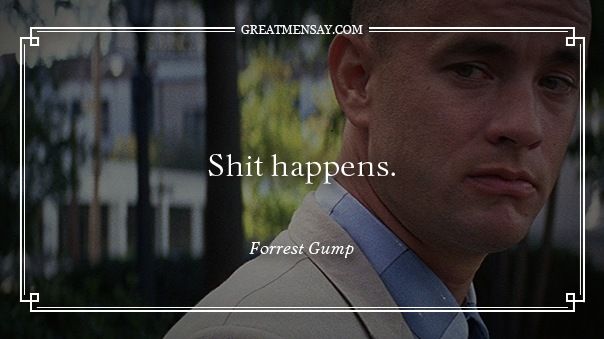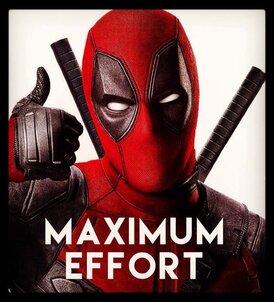When in a sabbatical of exercise, feelings of guilt can be common and distract the person from their reason for taking a break. A person may think they are ‘going backwards’ in their training, feel like a ‘blob’ or even start to lose sight in their training. When these disruptive thoughts come into play, it is important to remember that exercise is a lifelong practice to continue to come back to, not a short term fad.
To quote Forrest Gump: shit happens.
Things happen all the time in life that get in the way. It could be anything, and is personal to each person. Common barriers to exercise are when an unplanned event or situation comes in the way, a lack of time is created, or pain or boredom begins during training.
When ‘life’ seems to get in the way of training, it is important to keep your routine or schedule as consistent as possible. Even if your brain or heart isn’t in the individual workout, a routine can be the persuasion to keep moving forward. Different incentives towards consistency in exercise can look like a set schedule to hold you accountable, reassessing frequency of the workouts, or even a system to treat yourself once you have completed a certain number of workouts in a period of time. Another motivating factor to exercise is for the stress relief it provides. While fighting stress with a different type of stress may seem like an oxymoron, training provides an outlet for any pent up energy and provides endorphins, physically and mentally making you feel better after a session.
If you struggle with a lack of accountability in a hectic schedule-- causing you hesitation returning to exercise-- finding a way to hold yourself to your session will be the solution. Many people work out with their significant other or “gym bae” to have a person that will specifically demand that they be there to work out. Other than that, a personal trainer is the way to professionally have accountability--without annoying friends and family. Personally, if I need to hold myself accountable to a specific training session, I put my session into my personal calendar and treat it as a doctor's appointment. In my head, I will not miss a doctor's appointment, therefore I won’t miss the session.
Making decisions in a workout when you’re new or have pain or an injury can be the biggest physical barrier to exercise and one of the hardest to overcome. From chronic pain to a short term injury, pushing through pain during exercise is a non-starter and takes skill to work around. It is always important to listen to your body and medical professional; so hiring that professional to help you could be the support you need when starting physical activity. Along with this, training is sometimes monotonous (How many squats can a person do in their life? It remains to be seen..). Boredom within a program can be the breaking point for a person to completely stop the program and walk away from their exercise regime. This is where a personal trainer comes into play to mix up a workout for the day or create enough variety in the workouts to keep you interested.
Life is hard. Life is unpredictable. It’s a universal truth that everyone can empathize with. Whatever the reason for an exercise hiatus; it is valid and the important part is the return to physical activity. Taking an extended break from a training routine can mean taking a step back from previous intensity, moving towards a new style or mode of training, or reassessing goals for new targets.
Leina is an ACE Certified Personal Trainer and coach at Freedom Fit Gym. She can be reached at [email protected]







 RSS Feed
RSS Feed
